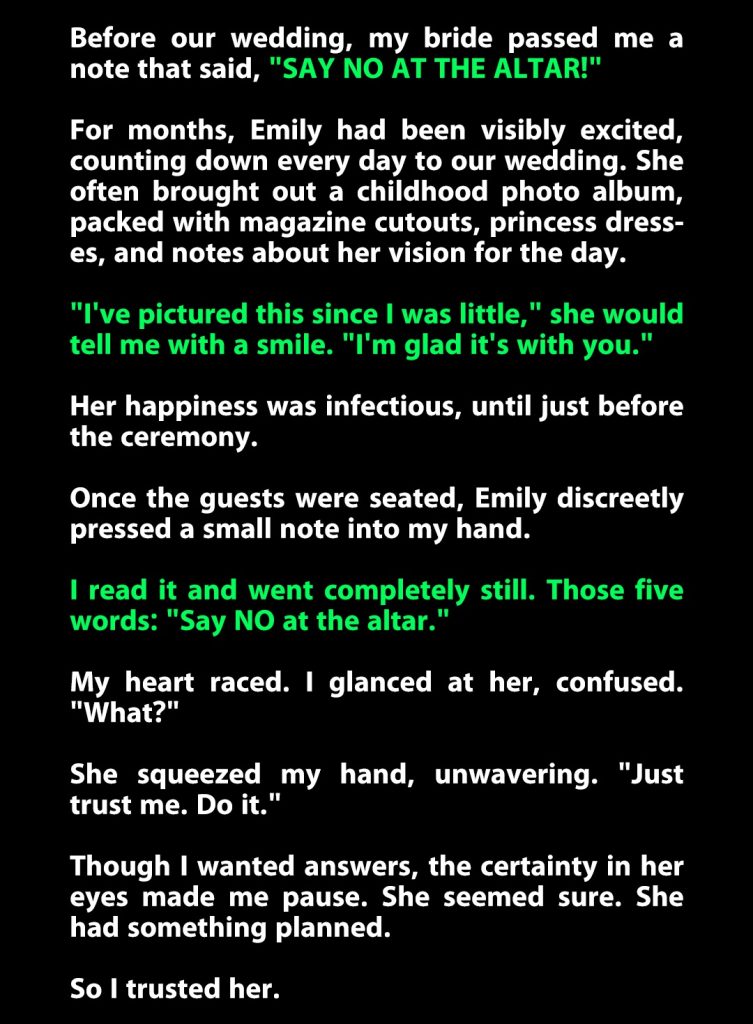Adam thought he was living a dream. His fiancée Emily was everything he’d ever hoped for—kind, thoughtful, and deeply compassionate. She wasn’t just the woman he loved; she was the kind of person who quietly helped others without seeking praise. From organizing meals for a colleague going through a divorce to covering presentations for a coworker with a sick child, Emily’s heart was always tuned to others’ needs.
Their love blossomed quickly. Within months, they were engaged, and Emily dove into wedding planning with childlike joy. She’d pull out a worn scrapbook from her childhood, filled with magazine clippings and scribbled dreams of her future wedding. Adam was enchanted—not just by the plans, but by the little girl who had once dreamed them.
But on the day of the wedding, everything changed.
Just moments before walking down the aisle, Emily handed Adam a note. It read: “Say no at the altar.”
It was absurd. Unthinkable. But Adam trusted her. So when the officiant asked, “Do you take this woman to be your lawfully wedded wife?” Adam said, “No.”
Gasps filled the room. Confusion rippled through the guests. But Emily smiled.
She turned to the crowd and revealed the truth: her father, who had long been absent from her life, had tried to manipulate the wedding for his own gain—pressuring her into inviting estranged relatives and using the event to mend his public image. Emily had felt trapped, unable to confront him directly. So she devised a plan that would stop the wedding in its tracks, reclaim her voice, and expose the emotional coercion she’d endured.
Adam’s refusal wasn’t a rejection—it was an act of love. A signal to everyone that this wasn’t the wedding Emily had dreamed of as a child. It was a performance forced by family politics.
Later, away from the chaos, Adam and Emily stood together, stronger than ever. They knew they’d still marry—on their own terms, in a place filled with love, not pressure.
Sometimes, saying “no” is the most powerful way to say “I love you.”



